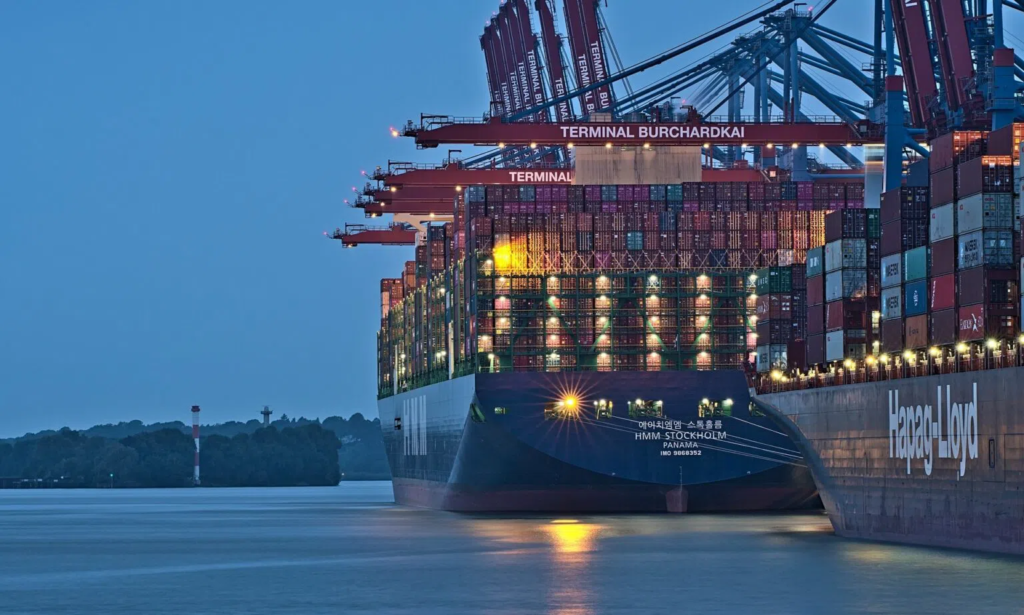
The European Union has added the maritime shipping industry to its carbon market, meaning vessels will have to purchase credits to cover emissions emitted while using EU waters.
Beginning in 2024 shipping companies will have to buy carbon credits to cover 40% of their emissions for travel in the EU. That coverage will increase to 70% of a ship’s emissions in 2025, and 100% in 2026. The rule will also make ships pay for 50% of their emissions on international voyages to or from the EU.
Also beginning in 2026 all emissions from carbon dioxide, methane, and nitrogen dioxide would be covered by the rules. The rules will apply to large ships that have more than 5,000 gross tonnages.
The maritime carbon market rule was added to the EU’s emission trading scheme, which has included other carbon-intensive industries such as oil and steel. Business Green reports it is the first time the maritime industry has been included in a carbon market.
The International Council on Clean Transportation (ICCT) says the shipping industry accounts for more than 80% of the world’s trade. While the industry currently accounts for approximately 3% of the world’s emissions if left unchecked could account for as much as 17% of human-caused carbon emissions by 2050, the council says.
The urgency of cutting emissions has picked up in the industry of late.
Beginning in 2023 the International Maritime Organization will require ship owners to report carbon intensity scores. An artificial intelligence platform from Bearing is designed to help ship operators prepare for the regulation by accurately predicting their carbon scores.
Cargo Owners for Zero Emission Vessels include 19 companies that have pledged to transition to ships powered by zero-emission sources by 2040. Royal Caribbean and Maersk Mc-Kinney Møller Center for Zero Carbon Shipping also have plans to help decarbonize the industry.
The ICCT says the maritime shipping industry could reduce emissions by 71% through more efficient operations and the use of biofuels and other low-carbon technologies. As part of implementing the rules, the EU also will allocate the proceeds from 20 million carbon permit sales to fund maritime emissions reduction projects.
“Liner shipping is already investing in the transition to zero GHG fuels, and is eager to operate vessels using renewably derived marine fuels distributed through a sustainable supply network,” said Jim Corbett, the World Shipping Council’s environmental director for Europe in a statement in response to the EU rule. “We are ready, and we hope that the EU ETS for maritime will help drive investment in renewable energy as well as in the supply networks needed for the alternative maritime fuels necessary to make the transition.”
European Parliament member Peter Liese of Germany says adding the maritime industry to the carbon market could reduce emissions by 120 million metric tons. That could be twice as much as the EU would save from transitioning from fossil fuel-based vehicles.
“Emission trading will force shipping companies to invest in clean technologies, otherwise they will have to pay a huge amount of money,” Liese said in Euractiv.
The rules are part of the EU updating its emission trading scheme, which includes a goal of reducing emissions by 55% by 2030. The EU is gathering on Dec. 16 and 17, 2022, when it is expected to vote on the updated regulations.
Source: EU Adds Maritime Shipping to Carbon Market Rules (environmentalleader.com)

